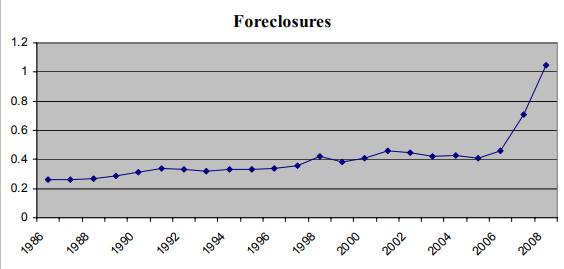A Buyers Market is a term commonly used in the real estate industry to describe a market condition in which buyers have the advantage over sellers.
In this article, we will delve into the concept of a Buyer’s Market, exploring its definition, implications, and significance in the housing market.
Table of Contents:

Definition of a Buyer’s Market
In simple terms, a Buyer’s Market refers to a situation in which there is an abundance of available properties for sale, and the demand from buyers is comparatively lower. In such a market, buyers hold a stronger position, as they have more choices and negotiation power, while sellers may find it challenging to sell their properties quickly or at their desired prices.
Overview of the Buyer’s Market Concept
A Buyer’s Market arises due to various factors, including fluctuations in market conditions, housing supply, and demand dynamics, and overall economic trends. When the supply of properties exceeds the demand from buyers, it creates a favourable environment for buyers, as sellers compete to attract buyers by offering competitive prices and incentives.
Monitoring market trends, such as the average time properties stay on the market or the ratio of listings to pending sales, can provide valuable insights into whether it is a Buyer’s Market or a Seller’s Market. In a Buyer’s Market, prospective homebuyers have the upper hand when it comes to negotiating terms, price reductions, contingencies, or requesting repairs.
Understanding the dynamics of a Buyer’s Market versus a Seller’s Market can be valuable for individuals looking to buy or sell properties. Buyers can make informed decisions and potentially secure favourable deals by keeping a close eye on the real estate market, analyzing market trends, and leveraging the advantages of a Buyer’s Market.
| Did you know? In a buyer’s market, you should identify the seller’s trigger, such as a closing date or eliminating as many contingencies as possible and include it in your offer. This can give you a competitive advantage over other buyers. |
Understanding a Buyer’s Market
In the ever-changing real estate market landscape, buyers and sellers must comprehend the dynamics of different market conditions. This article delves into the concept of a buyer’s market, shedding light on the factors that create such an environment, its associated characteristics, and its impact on the real estate industry.
Factors that Create a Buyer’s Market
A buyer’s market arises due to a combination of various market conditions that heavily favour the buyers. These conditions influence the supply and demand dynamics, ultimately impacting property prices and giving homebuyers a significant advantage.
One of the factors that contribute to the emergence of a buyer’s market is increased housing supply. When the number of available properties on the market surpasses the number of potential buyers, it creates a surplus of inventory, giving buyers a wider range of options to choose from.
Another factor is slow demand or decreased buyer interest. Factors such as economic downturns, rising interest rates, or changes in demographic patterns can dampen buyer demand, shifting the balance of power towards buyers.
Furthermore, in a buyer’s market, properties tend to stay listed for longer periods, leading to increased competition among sellers and potentially driving down prices.
Characteristics of a Buyer’s Market
A buyer’s market exhibits distinctive features that distinguish it from other market conditions. These characteristics include:
- Lower property prices: With increased housing supply and decreased demand, sellers face pressure to lower prices to attract buyers, leading to more affordable property options.
- Negotiation advantages: Buyers have more leverage in negotiating favourable terms, such as price reductions, seller concessions, or good financing arrangements, as sellers strive to attract potential buyers.
- Increased inventory: Buyers enjoy a wider selection of properties as the market is flooded with available listings.
- Lengthier selling process: Sellers may experience longer wait times to sell their properties due to the higher competition and reduced demand, requiring patience and strategic decision-making.
Impact of a Buyer’s Market on Real Estate
A buyer’s market significantly influences the real estate landscape, affecting both buyers and sellers. Some key impacts include:
- Price fluctuations: Property prices are more likely to experience downward pressure in a buyer’s market as sellers compete to attract buyers. This can present favourable opportunities for buyers to secure properties at lower prices.
- Extended negotiation process: Buyers can use their stronger negotiating position to request price reductions, repairs, or other concessions from sellers.
- Market slowdown: A buyer’s market can slow overall market activity, as sellers may delay listing their properties or withdraw them from the market until conditions improve.
- Increased buyer confidence: The buyer-friendly environment of a buyer’s market can instill a sense of confidence in buyers, empowering them to explore options and make informed decisions.
Understanding the dynamics of a buyer’s market is very important for buyers and sellers in the real estate industry. By recognizing the factors that contribute to a buyer’s market, understanding its characteristics, and being aware of its impact, individuals can navigate the market more effectively and make informed decisions.

Strategies for Buyers and Sellers in a Buyer’s Market
Navigating a buyer’s market requires specific strategies for both buyers and sellers to maximize their opportunities and achieve their goals. This article will explore practical strategies for buyers and sellers in a buyer’s market, empowering them to make informed decisions and achieve successful outcomes.
Strategies for Buyers in a Buyer’s Market
For buyers in a buyer’s market, the following strategies can provide a competitive edge and help secure the best deal. For starters, staying updated on market trends and property prices to identify areas with the most favourable conditions and potential for price negotiation.
With an abundance of options available, take your time to find the right property that meets all your needs and budget. Be open to exploring different neighbourhoods or considering properties that require some improvements. Furthermore, getting pre-approved for a mortgage strengthens your position as a serious buyer and helps you move quickly when you find the right property.
It is advised to collaborate with a knowledgeable real estate professional who understands the nuances of a buyer’s market and can lead you through the process, offer expert advice, and negotiate on your behalf. While it’s a buyer’s market, take into account the value of making a strong, competitive offer. Sellers may still receive multiple offers, so present an enticing offer that stands out while considering the property’s market value.
Leverage the buyer’s advantage to negotiate good terms such as price reductions, seller concessions, or contingencies to protect your interests during the transaction.
| Did you know? During the process of getting pre-approved for a mortgage, the lender evaluates your financial situation to determine the maximum loan amount and interest rate. They request personal information, papers, and a credit check. |

Strategies for Sellers in a Buyer’s Market
For sellers in a buyer’s market, employing effective strategies is essential to attract potential buyers and achieve a successful sale. The first step when selling in the buyer’s market is to research property prices in your area and consult with a real estate professional to set a realistic and competitive asking price.
Consider pricing your property slightly below market value to generate more interest and create a sense of urgency among buyers. It is recommended to invest in minor improvements to enhance your property’s curb appeal and make it more appealing to buyers. Additionally, stage your home to showcase its best features and create a welcoming atmosphere.
Utilize various marketing channels to get to a broad audience of potential buyers. This includes online listings, professional photography, virtual tours, and engaging descriptions that highlight the unique selling points of your property.
Buyers in a buyer’s market often have many options. Respond promptly to inquiries, accommodate showing requests, and be flexible with negotiation terms to demonstrate your willingness to work with serious buyers. Furthermore, incentives can be effective in attracting buyers.
Explore options such as offering to cover closing costs, providing a home warranty, or including some furnishings or appliances in the sale. For example, closing costs can vary from 1.4% to 4% of the purchase price, which can be expensive for buyers. Incentives can help you stand out among other offers and sell your home.
Collaborate with a qualified real estate agent with experience selling properties in a buyer’s market. They can provide valuable insights, market your property effectively, and negotiate with prospective buyers on your behalf.
| Did you know? According to 81% of buyers’ agents, staging a home makes it easier for a buyer to see the property as a future home. |
By implementing these strategies, both buyers and sellers can navigate a buyer’s market more effectively, seize opportunities, and achieve their desired outcomes.

Buyer’s Market: Case Study
In this section, we will explore a case study that highlights the impact of the housing market crash on the emergence of a buyer’s market.
Case Study: The Housing Market Crash and the Emergence of a Buyer’s Market
During the housing market crash of the late 2000s, the real estate market experienced a significant downturn, leading to the emergence of a buyer’s market. The collision resulted from various factors, including a surge in subprime mortgages, inflated property prices, and a subsequent decrease in demand. This situation created a favourable environment for buyers, who were able to take advantage of the following conditions:
- Increased housing supply: Foreclosures and distressed properties flooded the market, leading to a surplus of available properties for sale.
- The downturn in property prices: The crash caused a sharp decline in property prices, making homes more affordable for buyers.
- Weakened seller’s position: Many homeowners faced financial difficulties and were compelled to sell their properties at lower prices, giving buyers a significant advantage in negotiations.

This case study highlights how external factors can contribute to the shift from a seller’s market to a buyer’s market, providing valuable opportunities for buyers.
FAQ
Here are answers to some common questions related to buyer’s markets:
What causes a buyer’s market?
A buyer’s market is primarily caused by factors such as increased housing supply, decreased demand, and a surplus of available properties.
How do you know if it’s a buyer’s market?
Indications of a buyer’s market include a high inventory of homes, longer days on the market, and downward pressure on property prices.
What is the difference between a buyer’s market and a seller’s market?
In a buyer’s market, buyers have the advantage with more options, lower prices, and greater negotiation power. In contrast, a seller’s market favours sellers with high demand, limited inventory, and potential bidding wars.
How does a buyer’s market affect home prices?
A buyer’s market often leads to lower home prices due to increased competition among sellers and the presence of a surplus inventory.

Buyers Market – Final Words
Navigating a buyer’s market requires careful planning and research. In such a market, buyers have the advantage due to an abundance of properties and reduced competition. To make the most of this situation, buyers should conduct thorough research, set a budget, get pre-approved for a mortgage, negotiate wisely, consider working with an experienced agent, and practice patience.
By following these guidelines, buyers can successfully navigate a buyer’s market and secure a favourable deal on their ideal property.













